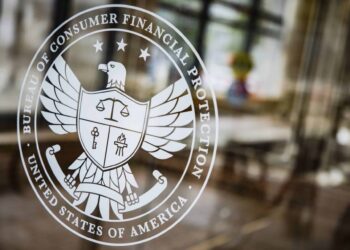
Republican lawmakers and lenders alike are eager to roll back the Consumer Financial Protection Bureau’s guidelines on disparate impact — given the results of November’s election — but it’s unclear what would replace it, in order to mitigate discrimination in the business, said John C. Redding, partner at Buckley Sandler LLP.
“There is nobody in the industry that wants discrimination or believes discrimination is in anyway positive, or good for business,” Redding told Auto Finance News. “I think the industry as a whole wants discrimination rooted out. But using this sort of inexact method to guess at whether it’s occurring seems inappropriate.”
Because the Equal Credit Opportunity Act won’t allow lenders to collect information on race and gender, the much bemoaned Bayesian Improved Surname Geocoding methodology — better know as BISG — tracks borrowers by geography and name to determine whether or not lenders are over charging protected classes. However, a 2014 study, conducted by Charles River Associates, found the disparity alleged by CFPB is not backed up by data, according to the American Financial Services Association (AFSA).
Furthermore, the creator of BISG himself said it was not intended for this purpose, and the CFPB has even acknowledged in internal memos that the methodology runs the risk of overestimating disparity.
The guideline is highly disliked by lenders and is even often referred to as the “But It’s Still a Guess” method, a credit finance trade association spokesman told Auto Finance News.
With a republican administration transitioning to power in January, Redding said he expects changes to the guidelines, and their are roughly four possible routes congress could take, sources told AFN.
1) Add More Factors
By adding more determinations beyond what is currently outlined in the BISG model, regulators would get more accurate measurements of disparity, Bill Himpler, executive vice president of AFSA, told AFN. These might include factors such as further granular geographic data into the model, which would improve results he said.
“What they’re doing is putting folks that are in Chicago and Peoria (Illinois) in a bucket to see if there’s a difference,” he said. “There is going to be a difference in rate just by virtue of the cost of capital associated with those two geographies.”
2) New and Used Rates
BISG currently does not make a distinction between new and used rates. Because “typically used rates are higher,” than new, there will always be a discrepancy that could over inflate disparate impact, unless these factors are taken into account, Himpler said.
3) Back to the Status Quo
There are some that have argued the Equal Credit Opportunity Act is enough to regulate the industry as it is. As long as lenders are unable to collect data on race and gender, in theory that purposeful lack of data should be enough to deter discrimination. Right or wrong, there may be no alternative offered by leadership Redding said.
“I don’t know that there is such a thing as a perfect methodology approach,” Kenneth Rojc, managing partner of Nisen & Elliott, LLC’s Automotive Finance Group, told AFN. “No matter what approach they use it tends to be approximations, instead of a definitive mechanism for pinpointing ethnic or racial identities.”
4) Focus on the Dealers
Because most auto loans are originated through the indirect model, lenders often have nothing to do with the deal, and therefore maybe shouldn’t be held accountable, Redding said.
“In Auto Finance, the financial institution does not enter into a transaction with a consumer, a dealer enters into a transaction with a consumer and they sell the contract to the financial institution,” Redding said. “So to hold the financial institution responsible for any alleged discrimination when they aren’t involved in the negotiation and transaction just seems inappropriate.”




